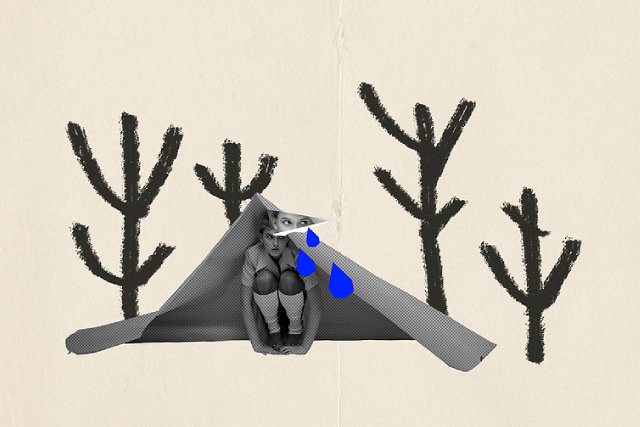The Science Behind Social Anxiety: Exploring Its Triggers
Social anxiety disorder (SAD), also known as social phobia, is a debilitating mental health condition characterized by an intense and persistent fear of social situations. While it's common for individuals to experience nervousness or discomfort in certain social settings, those with social anxiety disorder face overwhelming distress that can interfere with their daily lives. Understanding the science behind social anxiety and its triggers is crucial for effective treatment and support for those affected by this condition.
What is Social Anxiety Disorder?
Social anxiety disorder is one of the most prevalent anxiety disorders, affecting approximately 7% of the population worldwide. It typically emerges during adolescence or early adulthood and can persist throughout life if left untreated. Individuals with social anxiety often fear judgment, embarrassment, or scrutiny in social situations, leading to avoidance behaviors that can significantly impair their social, academic, and occupational functioning.
Symptoms of Social Anxiety Disorder
The symptoms of social anxiety disorder can vary in severity and may include:
Intense fear or anxiety: Individuals may experience overwhelming anxiety before, during, or after social interactions.
Physical symptoms: These can include sweating, trembling, rapid heartbeat, nausea, dizziness, or blushing.
Avoidance behaviors: People with social anxiety often go to great lengths to avoid social situations or endure them with extreme discomfort.
Negative self-talk: Persistent negative beliefs about oneself in social situations, such as feeling inadequate, unattractive, or inferior.
Impact on daily life: Social anxiety can interfere with relationships, work, school, and other aspects of daily functioning.
The Science Behind Social Anxiety
Social anxiety disorder is believed to arise from a complex interplay of genetic, biological, environmental, and psychological factors. Research in psychology and neuroscience has shed light on the underlying mechanisms of social anxiety, providing valuable insights into its triggers.
Genetic and Biological Factors
Studies suggest that genetics play a significant role in predisposing individuals to social anxiety disorder. Twin and family studies have shown that the risk of developing social anxiety is higher among individuals with a family history of anxiety disorders. Furthermore, neurobiological research has identified abnormalities in brain regions involved in threat processing and emotional regulation among individuals with social anxiety.
The amygdala, a brain structure implicated in the processing of fear and emotional responses, appears to be hyperactive in individuals with social anxiety. This heightened reactivity to social cues may contribute to the exaggerated fear response observed in social situations. Additionally, imbalances in neurotransmitters such as serotonin and gamma-aminobutyric acid (GABA) have been implicated in the development of social anxiety.
Environmental Factors
While genetic predisposition plays a significant role, environmental factors also contribute to the development of social anxiety disorder. Childhood experiences, such as bullying, teasing, or social rejection, can increase the risk of developing social anxiety later in life. Psychological trauma or negative social interactions during sensitive periods of development may shape one's perception of social interactions and lead to the formation of maladaptive beliefs and behaviors.
Cultural factors can also influence the prevalence and expression of social anxiety. Societies that place a strong emphasis on social status, conformity, or perfectionism may inadvertently contribute to the development of social anxiety symptoms. Furthermore, exposure to societal pressures through social media platforms can exacerbate feelings of inadequacy and social comparison among individuals prone to social anxiety.
Psychological Factors
Cognitive and behavioral theories of social anxiety suggest that maladaptive thought patterns and behaviors play a central role in the maintenance of the disorder. Individuals with social anxiety tend to engage in cognitive distortions, such as catastrophizing or overestimating the likelihood of negative outcomes in social situations. These distorted beliefs perpetuate the cycle of anxiety and avoidance, reinforcing the individual's fear of social interactions.
Behavioral experiments have demonstrated that avoidance behaviors, while providing temporary relief from anxiety, reinforce the perception of social situations as threatening. Over time, this avoidance behavior can lead to social withdrawal and isolation, further exacerbating social anxiety symptoms. Cognitive-behavioral therapy (CBT), which aims to challenge and modify these maladaptive beliefs and behaviors, has been shown to be effective in treating social anxiety disorder.
Exploring Triggers of Social Anxiety
While social anxiety can be triggered by a wide range of social situations, certain common triggers are particularly likely to elicit anxiety in individuals with social anxiety disorder. Understanding these triggers can help individuals with social anxiety and their support networks better manage and cope with the condition.
Performance Situations
Performance situations, such as public speaking, giving presentations, or performing in front of others, are common triggers for social anxiety. The pressure to perform well and the fear of being judged or criticized by others can provoke intense anxiety and self-doubt in individuals with social anxiety disorder. Even everyday tasks, such as eating in public or using public restrooms, can become sources of distress for those with social anxiety.
Interpersonal Interactions
Interpersonal interactions, including initiating conversations, meeting new people, or attending social gatherings, can be daunting for individuals with social anxiety. The fear of rejection, awkwardness, or saying something embarrassing can lead to avoidance behaviors and social isolation. Individuals with social anxiety may experience heightened self-consciousness and ruminate excessively about their social performance, further fueling their anxiety.
Authority Figures
Authority figures, such as supervisors, teachers, or authority figures, can trigger social anxiety due to the perceived power differential and fear of evaluation. The need to impress or gain approval from authority figures can intensify anxiety symptoms and lead to avoidance behaviors in professional or academic settings. Feedback or criticism from authority figures may be perceived as particularly threatening, exacerbating feelings of inadequacy or incompetence.
Social Comparison
Social comparison, fueled by social media platforms and societal norms, can exacerbate feelings of inadequacy and inferiority in individuals with social anxiety. Comparing oneself to others who appear more successful, confident, or socially adept can trigger feelings of envy, self-doubt, and insecurity. The constant pressure to measure up to unrealistic standards can perpetuate the cycle of social anxiety and undermine self-esteem.
Uncertainty and Ambiguity
Uncertainty and ambiguity in social situations can be particularly anxiety-provoking for individuals with social anxiety disorder. The lack of clear social cues or expectations may leave individuals feeling vulnerable and exposed, unsure of how to navigate social interactions. Fear of making mistakes or misinterpreting social cues can lead to avoidance behaviors and heightened anxiety in uncertain social contexts.
In Closing
Social anxiety disorder is a complex and debilitating mental health condition characterized by an intense fear of social situations. While genetic, biological, environmental, and psychological factors all contribute to the development of social anxiety, understanding the science behind its triggers is crucial for effective treatment and support. By identifying common triggers, such as performance situations, interpersonal interactions, authority figures, social comparison, and uncertainty, individuals with social anxiety and their support networks can develop strategies to manage and cope with the condition. With proper treatment, individuals with social anxiety can learn to overcome their fears and lead fulfilling lives.
At The Mind Collected, we offer specialized individual counselling services tailored to address the unique needs of individuals struggling with social anxiety. Our experienced therapists provide compassionate guidance and evidence-based anxiety therapy in Singapore to help clients challenge negative thought patterns, build confidence, and develop effective coping strategies for navigating social interactions. If you or someone you know is struggling with social anxiety, reach out to The Mind Collected today to learn about our therapy fees and start your journey to healing.


